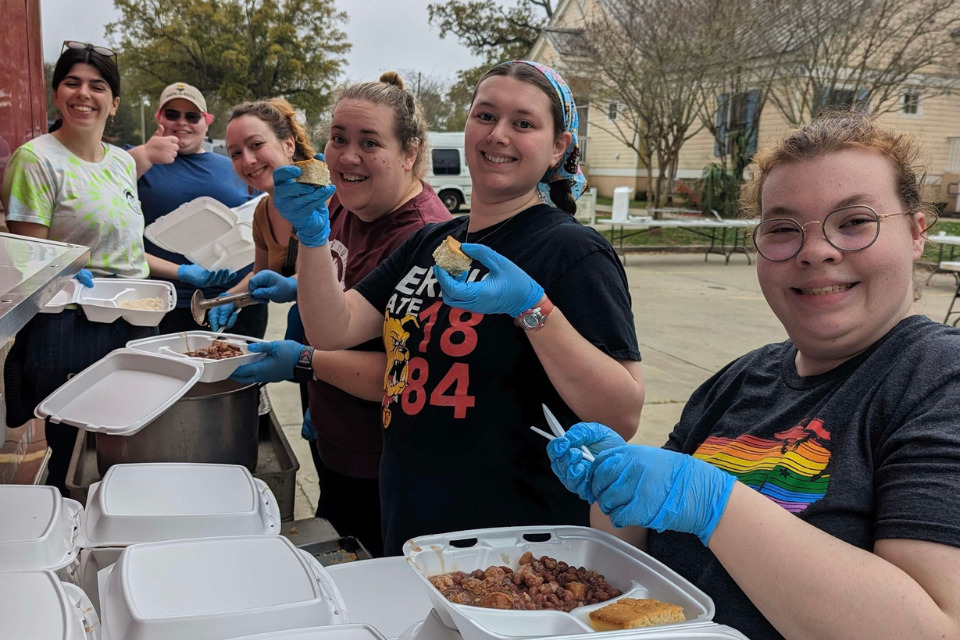Campus ministries are fearless leaders in building innovative, come-as-you-are faith communities as they flex and adapt to the unique challenges facing young adults today.
JAMES DEATON
Content Editor
It’s back-to-school time, and the Michigan Conference’s eight campus ministries are gearing up for a new year of innovative and creative ministries with young adults. Campus ministry leaders know there is no one way to do campus ministry, which is challenging yet freeing.
United Methodist campus ministries are fearless leaders in creating welcoming, come-as-you-are faith communities. These inclusive communities give young adults sacred space to grow in faith and mature as they prepare for life’s challenges.
Post-pandemic, each campus ministry is pivoting to adapt to the unique challenges facing young adults. Even though each setting is different, some common beliefs and practices are grounding their Wesleyan approach to ministry.
One of the core guiding principles United Methodist campus ministries in Michigan are unapologetic about is their commitment to providing a safe, sacred space for young adults to share their joys and hopes, their struggles and doubts, and to know they are held in Christian love by a caring community.
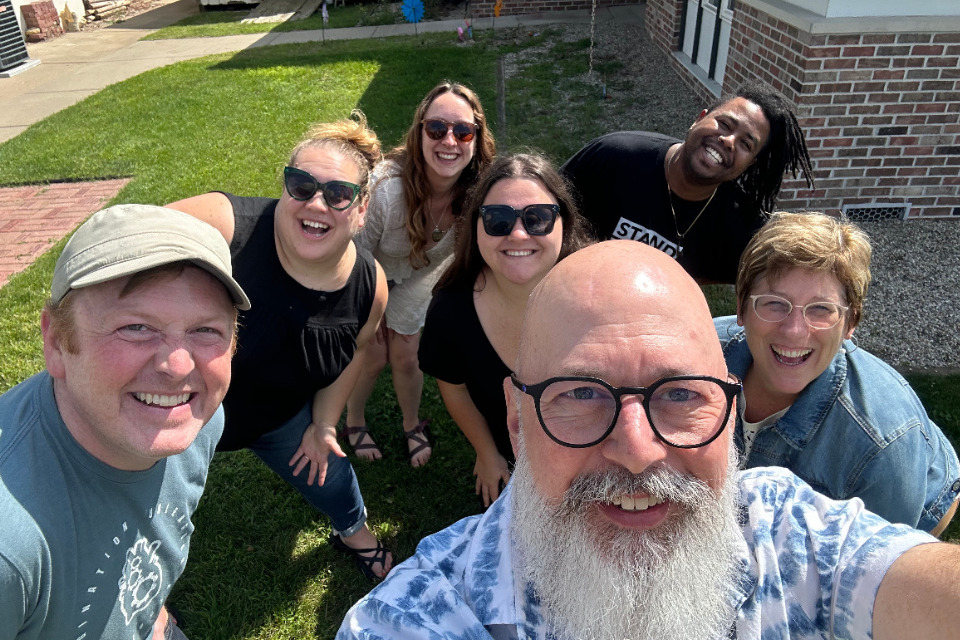
The incoming new students arriving this fall were high school freshmen at the beginning of the pandemic. Many have experienced anxiety and depression and have particular needs in navigating in-person community and moving into a world not yet fully explored.
Campus ministries are bold in creating inclusive faith communities, going out with purpose and welcoming all, especially those marginalized because of sexual orientation, gender identity, race, national identity, immigration status, or religious affiliation.
Marginalized young adults on university and college campuses seeking God and exploring their faith can find connection and support at any of our United Methodist campus ministries. Several of them are the only LGBTQ+-affirming ministry on campus. This is true for Wesley Foundations at Central Michigan University (CMU), Ferris State University (FSU), and Northern Michigan University (NMU), and for United Campus Christian Fellowship serving the Grand Rapids area.
Wesley at CMU intentionally makes space for queer-identified students to explore faith and spirituality. According to Rev. Audra Hudson Stone, “We try to go beyond ‘welcome’ to making spaces of ‘belonging,’ where queer students are centered and in leadership. For example, we have created small groups like our ‘Queer Christian Connection’ community and partnered with LGBTQ+ student organizations to host events. This spirit of belonging, of course, extends beyond our queer students to welcome any young person looking for authenticity in community.”
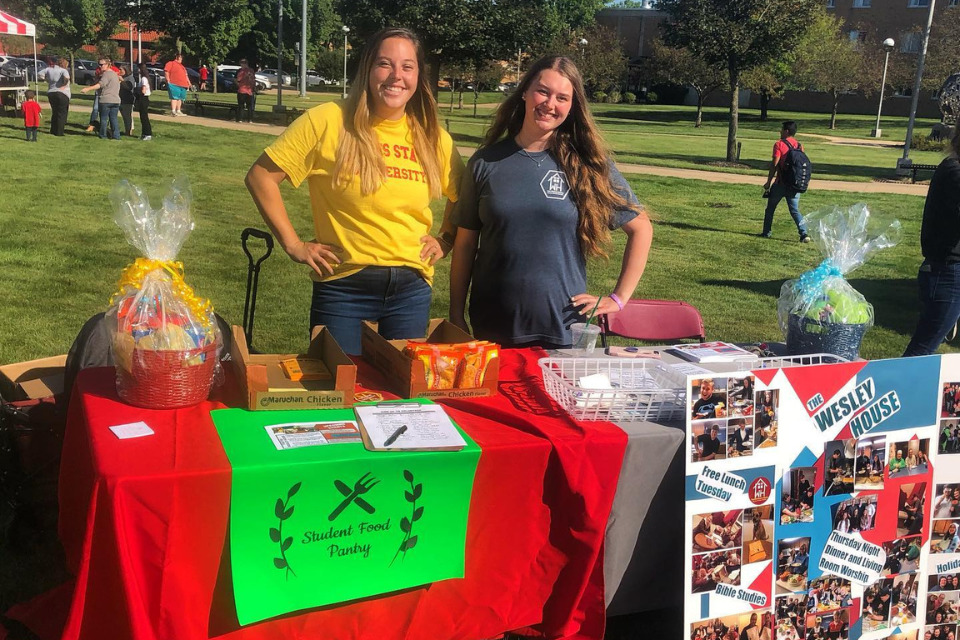
This open-hearted, open-minded spirit is a part of FSU Wesley’s niche on campus. They are the only campus ministry that allows women to serve as clergy, the only one that engages in anti-racism work, and the only one that celebrates the spirituality and faith of LGBTQ+ students.
Rev. Kim Bos, campus minister at FSU Wesley, explains that their ministry focuses on exploration and formation instead of certainty. “We are far more interested in discipling students into a faith that belongs to them personally, one they feel they have ownership of, rather than telling them what they should believe.” FSU Wesley opens their doors to seekers and those who have been hurt by religion or the church. “We’re growth and healing oriented,” says Bos, “and more interested in ‘going on to perfection’ than having all the best answers.”
Erica Thomas, director of NMU Wesley, often sees young adults who carry scars from religious trauma and are hesitant about engaging in traditional Christian worship. So, through community dinners on Sunday nights with simple devotions, theological discussions at a local brewery, and the spiritual practices they introduce and nurture in their CommonGrounds coffee shop, NMU Wesley is a way for young adults to re-engage with God and God’s people in ways that are affirming and positive. Thomas explains, “We seek to find ways to allow them to question and grow, ponder and expand their faith in their time with us so that when they graduate or move on, they are seeking to be part of God’s kin-dom and to do God’s will with their lives wherever that takes them.”
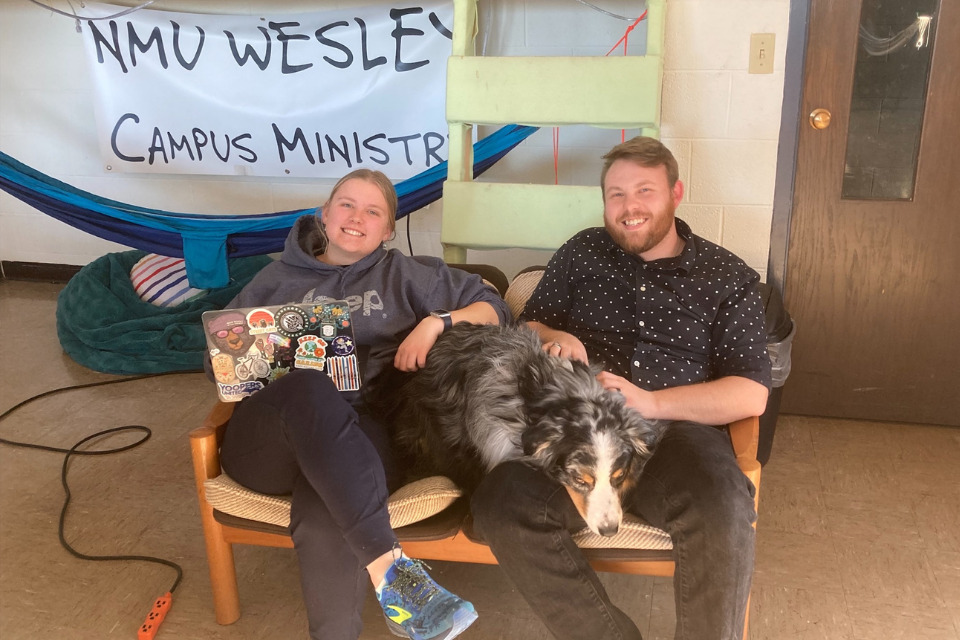
Wesley Foundation at WMU in Kalamazoo celebrates 100 years of ministry this fall and partners with several United Methodist congregations in the area, especially Kalamazoo: First UMC, which launched the campus ministry in the 1920s, to address the changing needs of students.
According to Jarell Wilson, Wesley at WMU’s new campus minister, these foundational relationships have allowed Wesley at WMU to evolve as it tends to the body and the spirit. Worship and spiritual formation are integral to their ministry identity, but so is assisting students who experience food or housing insecurity. Wesley partners with other organizations to offer free meals and groceries through food pantries. And they have a very affordable campus housing option in a faith-guided intentional community.
These tangible needs are also concerns on other university and college campuses. United Campus Christian Fellowship (UCCF) is a multi-campus, multi-denominational campus ministry in the Grand Rapids area. Grand Valley State University, one of the campuses they serve, just admitted their largest freshman class, but they are struggling to guarantee housing.
Kate Van Valkenburg, campus minister with UCCF, says they are pivoting to meet these ongoing challenges. “Like all colleges and universities,” she says, “we have seen an increased need for mental health and success resources. Students, faculty, and staff are struggling at our institutions. That is clear. UCCF tries to help where we can by providing free meals, one-on-one pastoral support, and a community where we hope they feel a sense of belonging. We are known for our radical acceptance and focus on justice.”
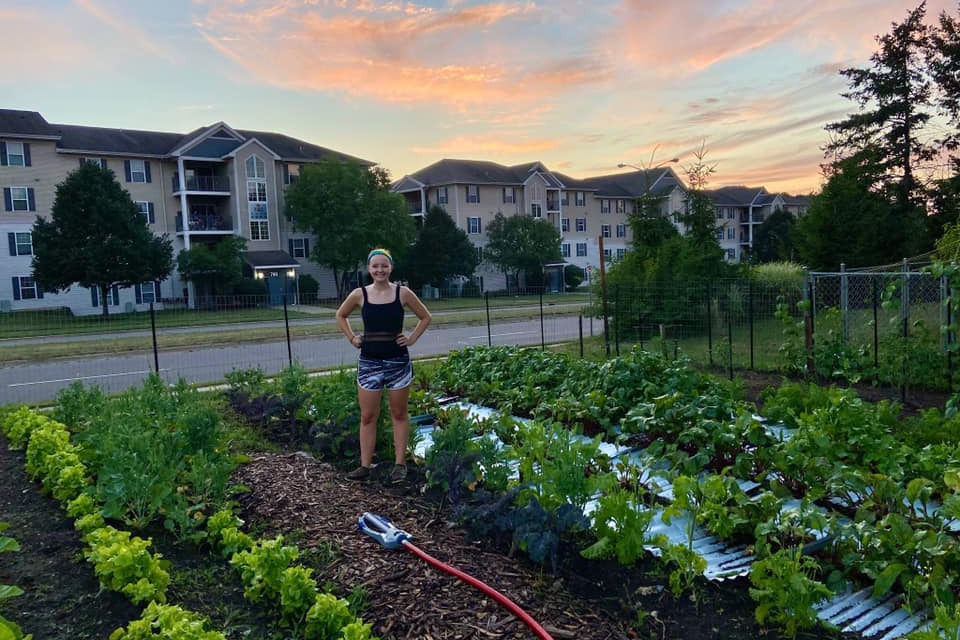
Motor City Wesley is deeply connected to Detroit’s history, challenges, and opportunities. It is rooted in the spirit of the justice-minded campus ministries, many of them United Methodist, that have been present in Detroit since the 1940s. Motor City Wesley is a student-led campus ministry that seeks to engage students in faith development, service, and witness.
Rev. Carl Gladstone, campus minister with Motor City Wesley, says that student leaders are involved in various experiments that offer new methods for Christian life today. He says that some experiments have been successful, like their Motor City Hymns spring break trips to Nashville, TN, to record original worship music produced and performed by students for use by the whole church. Gladstone hopes that each of these experiments moves those young adults “closer to practices of creativity, community, and conspiracies for goodness that help us love God and love our neighbor.”
Congregations in the Detroit Metro area, such as Dearborn: First UMC and Birmingham: First UMC, support and partner with some Motor City Wesley creative projects, including their $100 Conspiracies of Goodness microgrants. Each Motor City Wesley student receives $100 to start a project that creates goodness in the world and develops strategies to multiply their resources to make an even more significant impact. These projects serve the city, the campus, and beyond.
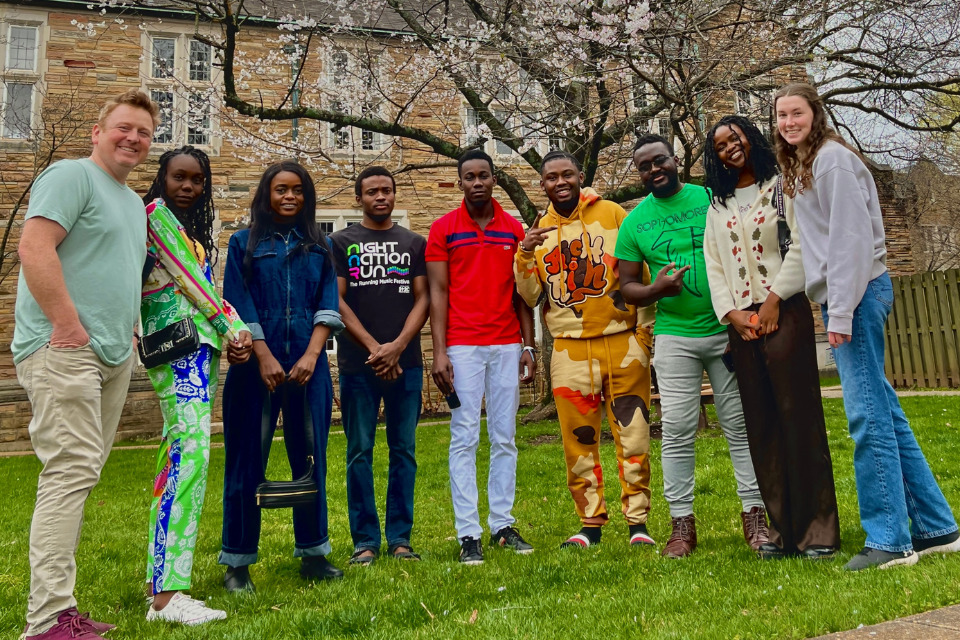
Wesley at Michigan State University (MSU) is going through a season of transition and discernment following the departure of Jim Magee, executive director since 2020, who left to pursue a career path in another field. According to Rev. Melanie Carey, pastor at University UMC, where Wesley is housed, “the MSU Wesley Board of Directors has decided to take time to redevelop, reset, and reimagine this ministry and the nature of faith formation at this time.” For this academic year, MSU Wesley is collaborating with The People’s Church Campus Ministry led by Rev. Haley Hansen, and MSU students are invited to join their weekly gatherings.
Carey notes that the campus and the entire Lansing community are still recovering following the horrific gun violence in February that killed three students and injured five more. University UMC is working to find ways to be a place of healing and belonging with students who wish to connect with a faith community. This fall, University UMC is launching new outreach ministries designed in conversation with students and community partners and forming small group ministries led by and focused on graduate and undergraduate students.
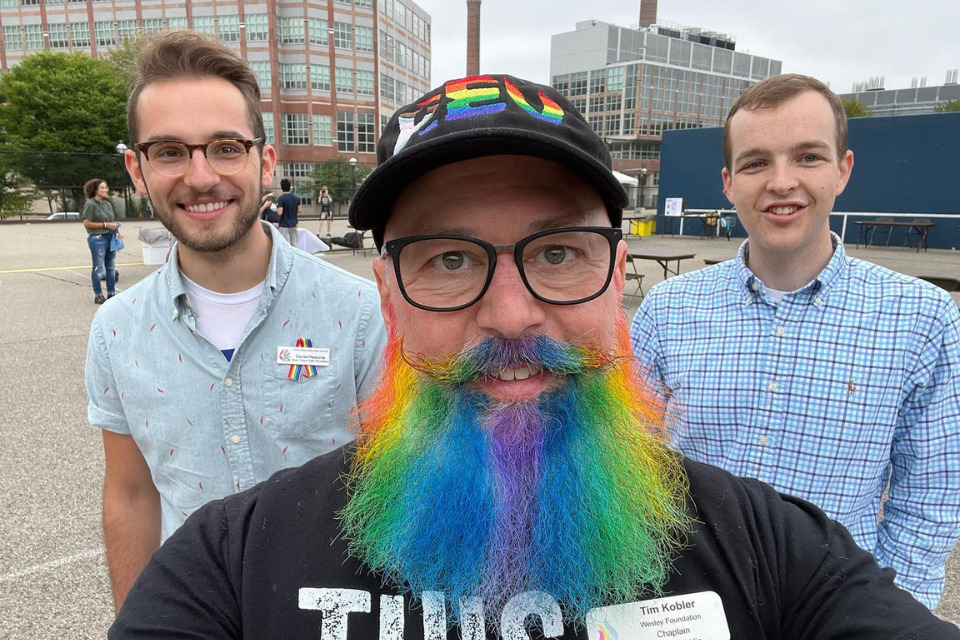
At the other Big Ten university in the state, the Wesley Foundation at the University of Michigan has close ties to a faith-filled United Methodist university church, Ann Arbor: First UMC. Wesley is physically adjoined with Ann Arbor: First, and their collaborative work has been mutually beneficial. Wesley has also had a growing relationship with Ypsilanti: First UMC with efforts to reach young adults attending Eastern Michigan University.
Reconnecting with students following the pandemic has been a challenge for Wesley at UofM. Rev. Tim Kobler, campus minister, notes that they offer safe, supportive contexts to grow in their understanding of and participation in community. These sacred spaces are radically inclusive. Kobler says, “We help students discover who they are as spiritual beings, and we help them in their exploration of spiritual disciplines and their giftedness.” They have also been exploring anti-bias and anti-racist efforts in their campus, communities, and world.
An innovative project the campus ministry is about to unveil is their Sacred Ink art installation, which is a joint project with students in the Stamps School of Art & Design at the University of Michigan. It’s a collection of photographic portraits of people’s tattoos and the sacred stories behind their ink. Kobler notes, “Our hope is that these photos and stories will help others realize that young people do have spiritual connections. We also hope to help the people photographed think theologically about their story.” Kobler plans to take the gallery around the state and the surrounding region to help share these sacred stories.
Want to financially support the good work of our Michigan Conference campus ministries? Visit the Michigan Conference’s Division on Higher Education and Campus Ministry giving page (click here). You’ll be able to give to the Division, which supports the entire statewide network, and individual campus ministries. Each of our campus ministries is an EngageMI Ministry Partner, so if your church is an EngageMI congregation, give through that Michigan Conference mission engagement program (click here).
~ Thanks to each of the campus ministry leaders and campus ministry websites/Facebook pages for content and reporting for this article.
Last Updated on September 5, 2023

